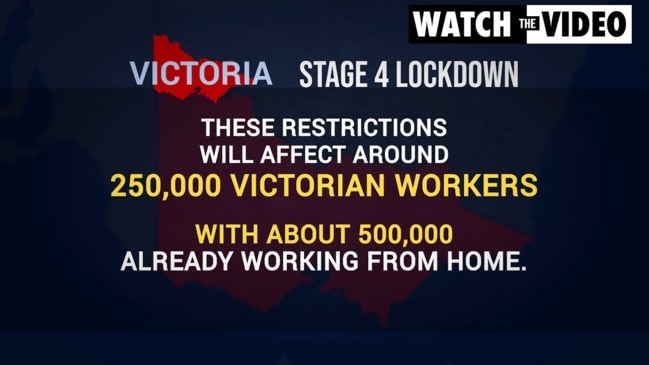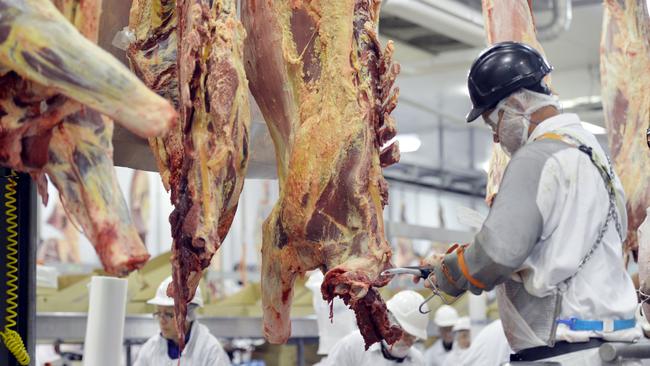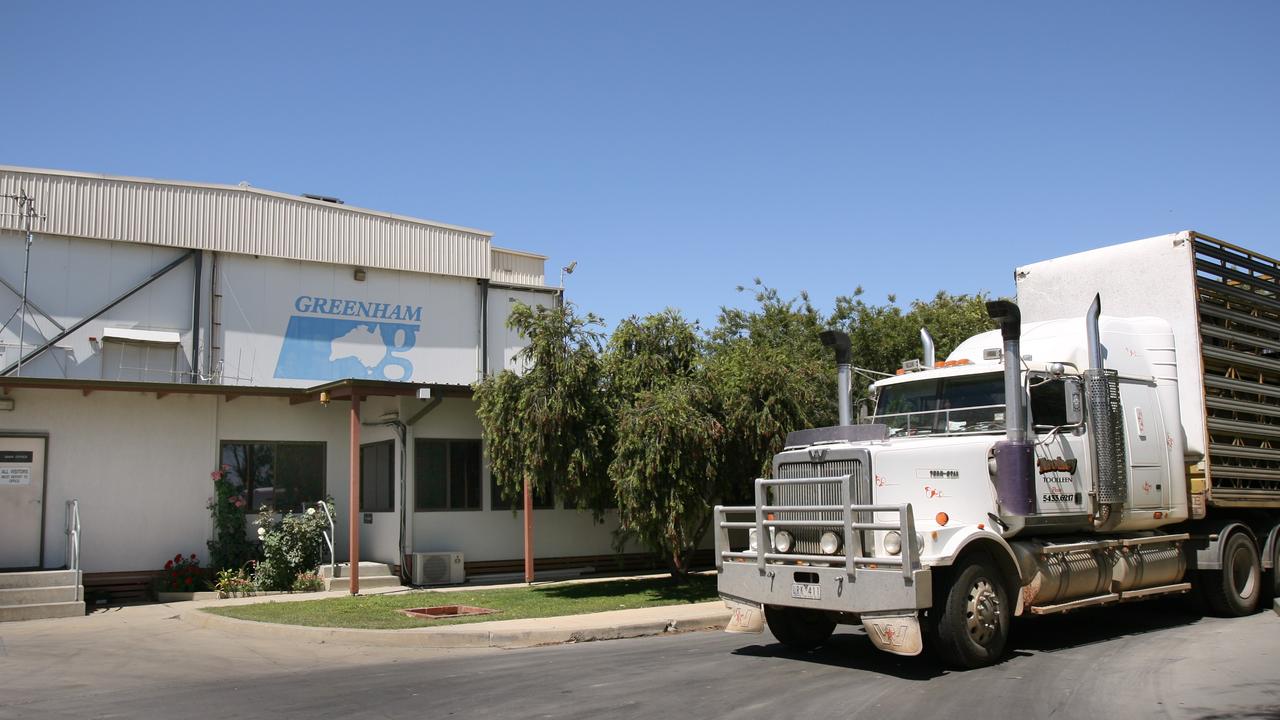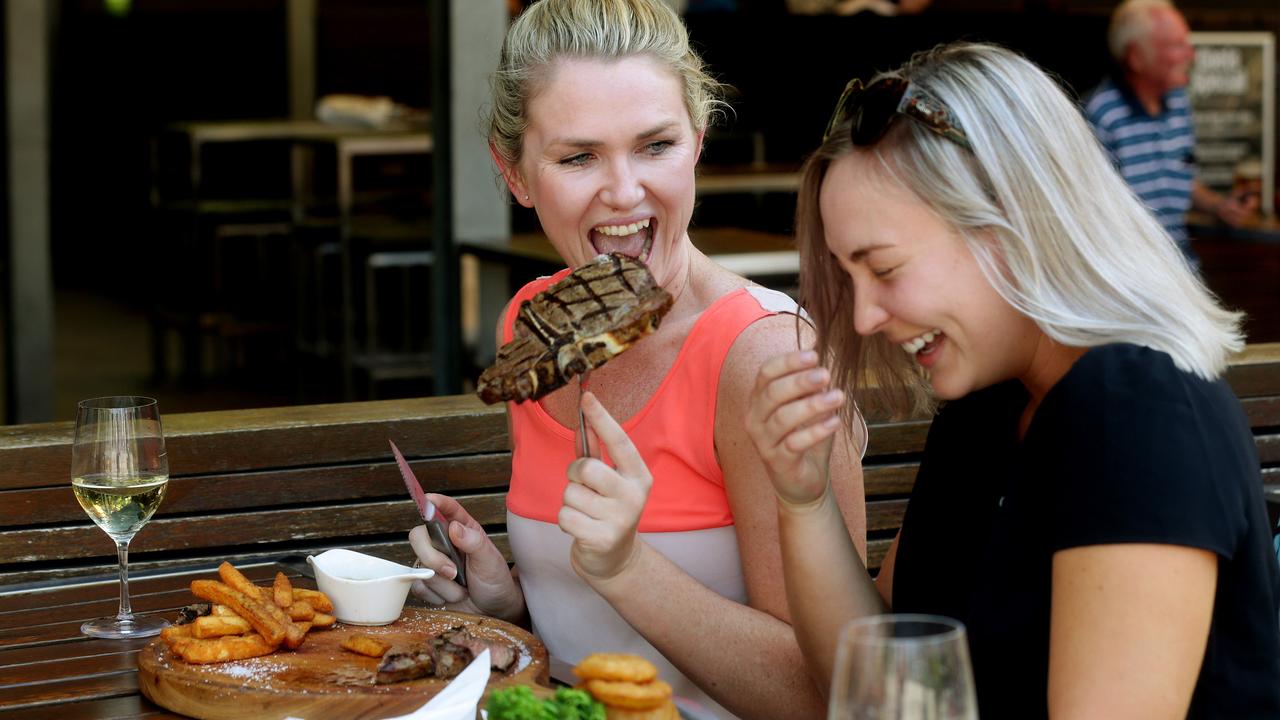Coronavirus lockdowns force big changes to abattoirs across Victoria
Victoria’s harsh lockdown will see significant changes to abattoirs across the state, including decreased production, mandatory temperature checks and more. Here’s how it will affect them.

This coronavirus article is unlocked and free to read in the interest of community health and safety. For full access to The Weekly Times, subscribe here.
ABATTOIRS across the state will be required to scale back production to two-thirds.
Premier Daniel Andrews announced the changes on Monday, saying “meatworks are a really significant challenge for us”.
Safety protocols will also be stepped up.
“There will be some of the most stringent safety protocols that have ever been put in place in any industrial setting,” he said.
“Those workers will be essentially dressed as if they were a health worker.
“Gloves and gowns, masks and shields, they will be working in one workplace only, they will be temperature checked, they will be tested.”
Meat and seafood processing and distribution centres have until midnight Friday to make the changes.
Thirteen meat processors were hit by coronavirus in July, with at least 495 cases linked to the sites.
Mr Andrews said the decision was a “proportionate response”.
“It’s not possible to go below that two-thirds level so cutting production by a third, we still believe people will be able to have access to the products they need.”
Thomas Elders Markets analyst Matt Dalgleish said the reduction in capacity comes at a time where abattoir throughput “is low anyway” due to herd rebuilding and the impact of drought.
“If you look at where the bulk of the spread is, meatworks are over represented,” Mr Dalgleish said.
“As we’ve seen, (coronavirus) is spreading from different types of meatworks. It’s not just one category. Last week it was in a pork processor, this week it was in a chicken processor … it seems to be jumping reasonably easily across regions.”

Mr Dalgleish said there was scope for meat processing plants in neighbouring states to absorb some of the kill that would otherwise go through Victorian plants.
“It’s obviously going to be a difficult time,” Mr Dalgleish said.
Under further restrictions announced on Monday, agriculture is one of the few industries permitted to continue in Melbourne and the regions.
Farming will continue across the state, including support businesses such as on-farm consultants, agronomists, shearing contractors and trades services.
Saleyards, livestock transportation, animal feed production and veterinary clinics will also continue operating.
The Victorian Farmers Federation took part in emergency talks earlier today.
“The VFF recognises the gravity of this responsibility,” VFF president David Jochinke said.
“We understand the trust that has been placed in our sector and that we are accountable for keeping Victorians fed during this state of disaster.
“Our clear guidance to farmers is to be extra vigilant as COVID-19 reaches our doorstep.
“We must implement the best protective measures for our businesses and our workers: face coverings or visors for employees, ceasing communal gatherings, installing screens/curtains, furloughing of staff, physical distancing, cleaning and disinfection measures and insisting on personal hygiene and use of sanitisers, minimising the number of people coming onto your farm.”
Mr Andrews’ announcements come after he revealed on Sunday Melbourne would be entering stage four lockdown restrictions, while regional Victoria would be entering stage three restrictions from midnight Wednesday.
MORE


